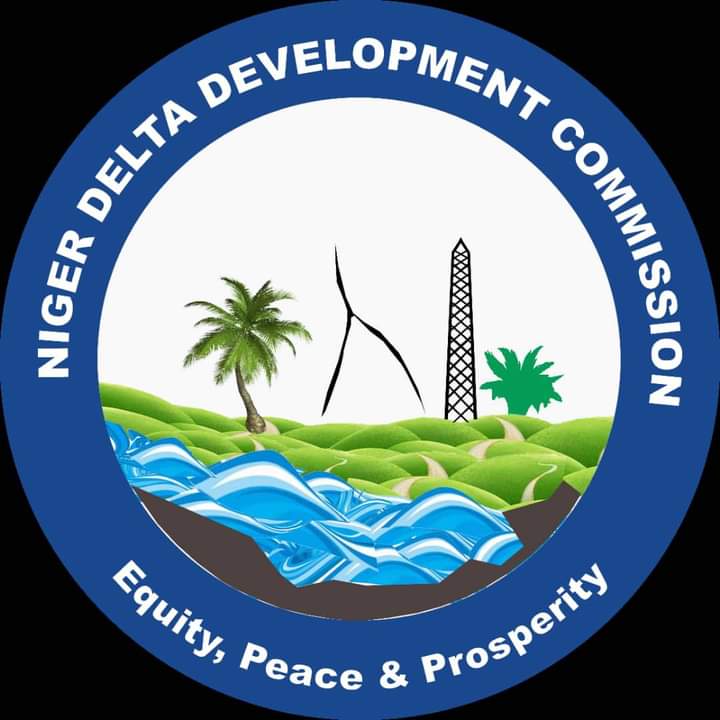BY SAM DUVWODE
The group, Civil Society in Malaria Control, Immunisation and Nutrition (ACOMIN) has called on government to prioritize the health of its citizens by taking swift and decisive measures to improve living conditions and eliminate the breeding grounds for malaria-carrying mosquitoes.
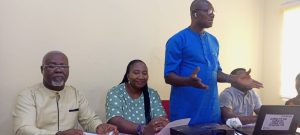
ACOMIN also urge government and relevant stakeholders at all levels to support Community Based Organizations (CBOs) implementing projects towards elimination of malaria in communities across the State.
The call was made by the Delta State Chairman, Civil Society in Malaria Control, Immunisation and Nutrition (ACOMIN), Pastor Greg Sifo at Orchid Hotel Asaba during the State Media meeting on Global Fund Malaria Community Led Monitoring Project Being Implemented by ACOMIN.
Pastor Sifo use the occasion to enjoin people in rural and urban commuities to make use of mosquito treated Nets and cultivate the habit of keeping their environment clean.
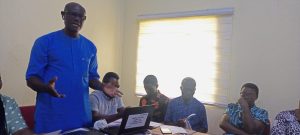
According to him, the use of mosquito treated Nets is imperative in order to prevent malaria which is a serious disease that can be life-threatening if not diagnosed and treated promptly.
He call on government at all levels to provide infrastructure and equipment, implement effective recruitment and retention strategies to attract and retain skilled healthcare professionals and prioritize the development of reliable electricity and water infrastructure in healthcare facilities.
Also, Dr. Julie Aniah of the State Malaria Programme Management, advised residents in communities especially pregnant women to discourage the use of Traditional Birth Attendants (TBAs), saying that, TBAs because they are not well trained health personels sometimes cause complication and infections on pregnant women during birth delivery.
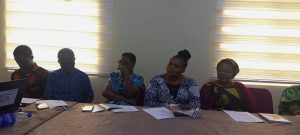
Dr. Aniah advised pregnant women to always make use of malaria treated Nets, go for malaria test and ensure that they get the right treatment from Primary Healthcare Centre (PHC) in their community.
Delivering a speech, the State Program Officer, Sir Austin Uwede, noted that, Malaria is a serious disease that can be life-threatening which can be prevented and treated, but if not diagnosed and treated promptly, it can progress to a severe form that is often fatal..
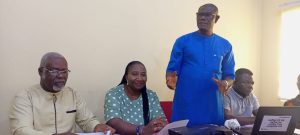
According to him, malaria is not contagious and cannot be transmitted from person to person. It is spread by female mosquitoes of the Anopheles species. He added that Weather plays a role in the transmission of malaria.
“Nigeria experiences high levels of rainfall between June and September, which leads to increased malaria transmission during these humid months. Malaria incidences thrive in areas with unsanitary conditions, such as stagnant water, poor drainage systems, and inadequate waste management”.
Sir Uwede noted that, to address the issue of unhygienic living conditions and prevent the spread of malaria, urgent action and collective effort from the public are needed.
He said; “Sleeping under Insecticide-Treated Nets is crucial as they provide a physical barrier against mosquitoes, these nets are effective in reducing the risk of infection, especially for vulnerable groups like pregnant women and young children”.
Sir Uwede advised government to enhance waste management systems to ensure efficient and effective waste disposal and develop sustainable solutions and initiatives aimed at improving living.
He noted that, as part of a national effort to address the challenges of Malaria in Nigeria, ACOMIN is working with Catholic Relief Services (CRS) on the ongoing Global Fund (GF) Malaria Grant, to continue implementing the civil society component. The grant is presently being implemented in the thirteen (13) GF-supported states namely Kaduna, Kano, Katsina, ligawa, Kwara, Niger, Taraba, Gombe, Yobe, Adamawa, Ogun, Osun, and Delta States. The project covers 8 LGAS in each state. In Delta state, the selected LGAS are Aniocha South, Oshimili South, Ughelli North, Ughelli South, Isoko North, Ndokwa West, Sapele, and Patani.
He said ACOMIN is using this medium to call on the mass media to contribute to Nigeria’s goal of eliminating malaria by amplifying that, all members of the public should ensure that their environments are well-kept and void of stagnant water, waste-forming receptacles for water, and open water storage containers around where mosquitoes can breed.











